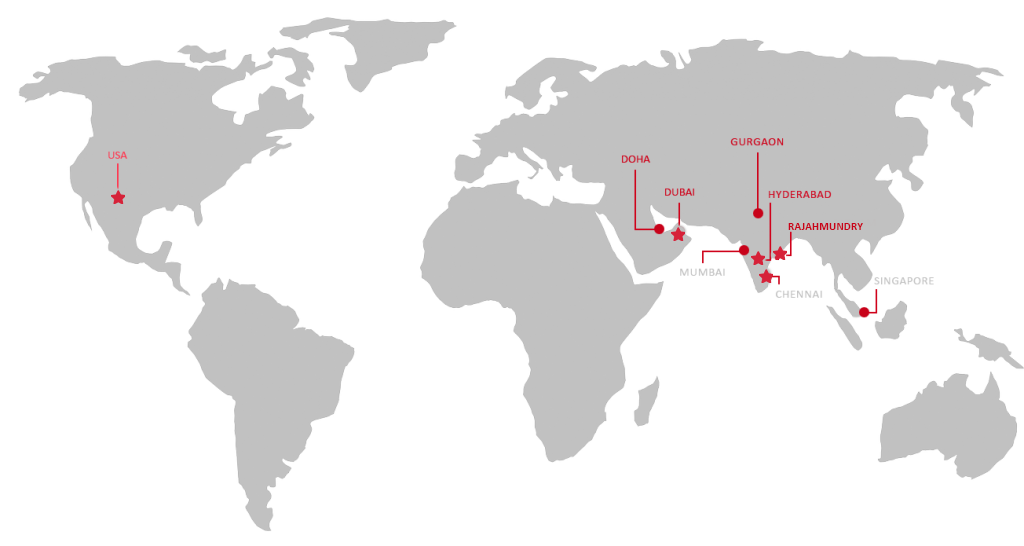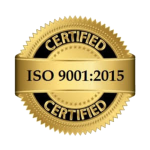
On-Premises and Cloud Oracle Database Product Options
Oracle database products have the status of the world’s best databases. Certainly, there are infinite number of reasons as to why Oracle is the #1, however, at the core – it is the developer and data productivity that make Oracle databases simply unmatchable. With a legacy of more than four decades, Oracle extends developers and CTO/CIOs highly affordable, extreme performance, multi-model, multi-tenant, multi-workload, autonomous database management systems, aimed at simplifying relational database environments and minimizing management workloads.
Multi-model: Native support for diverse data models including JSON, Graph, Relational, etc.; and diverse, cross-model (e.g., REST APIs, SQL), and model-specific (e.g., PGQL) access methods.
Multi-tenant: Container architecture within the data tier affording customers isolation, consolidation, and agility for their databases, which is significantly more efficient than containerization in the application tier.
Multi-workload: Extensive number of optimizations for diverse workloads, including machine learning (ML) parallel execution, rapid in-memory commits, the incoming streaming data from smart IoTs, etc.
Autonomous: Automated configuring, provisioning, tuning, patching, securing, failure detecting, and repairing database – designed to cut operational costs by 90%.
Related Infolob blogs:
Not to mention the options for NoSQL, in-memory, and MySQL databases, along with the integrated security and management, data fragmentation, and copy contagion-proof features, etc., that allow for a single, unified system for bolstering IT professionals clock peak performance and cost-efficiency. All made available in the Oracle Cloud Infrastructure (OCI), or on-premises with Oracle Cloud@Customer, per the customers’ preferences and conveniences.
Time to take a closer look at each of the Oracle database product options.
The Oracle Autonomous Databases
Not only the overheads, the complexity of operating/securing databases and still ensuring the highest performance and availability, however, the time spent in managing these systems also oftentimes overwhelms enterprises. Well, that concern can now be classified as history, since with Oracle’s autonomously-managed databases, organizations stand free from all the conventional obligations in the path of constructing modern applications using a converged database.
The Oracle database products that fall under this class are:
- Oracle Autonomous Transaction Processing (ATP)
Like most of the Oracle database products, the Oracle Autonomous Transaction Processing is a cloud database service that inherits all the autonomous characteristics of the Oracle Autonomous Database, and is capable of supporting both uncomplicated and sophisticated, modern, business-critical applications.
Particularly on performance, availability, and security, the Oracle Autonomous Transaction Processing sports:
- 80% lower latency and five-times the throughput than any other databases in the class
- 95% availability, guaranteed via Gen2 OCI, RAC, Data Guard
- Instant rewinding of accidental and malicious (e.g., SQL Injection) changes occurred at any levels via Oracle Flashback
- Industry-leading security capabilities via Oracle Data Safe
- Oracle Autonomous JSON Database
A cloud document database service that facilitates JSON-centric applications development, featuring simple document APIs, ACID transactions, serverless scaling, comprehensive security, high performance, and low pay-as-you-go engagement model. The ‘Autonomous’ DNA in Oracle JSON Database helps enterprises auto-provision, auto-configure, auto-tune, auto-patch, auto-secure, and auto-repair their databases, while extracting 99.95% availability.
The benefits that accompany Oracle Autonomous JSON Database:
- Open-source NoSQL-type document APIs for empowering users to build JSON-centric applications minus data model and complex code writing concerns
- Fast-track application development in popular languages/platforms including Java, Node.js, Python, while reaping the versatility of the REST API, IDE, CLI ext., and accessing web interface
- Compatibility with the new native binary JSON document (file sizes of up to 32 MB, which is two-times the size of MongoDB Atlas), highly optimized for fast reads and partial updates
- Limitless indexing, comprehensive SQL, single-click multi-model database conversion, 98% less code with Oracle APEX
- Oracle Autonomous Data Warehouse
Deployable in both OCI and Cloud-at-Customer, the Oracle Autonomous Data Warehouse (ADW) is a cloud data warehouse service, widely known for its automatic data loading, data transformation, insights, business models, and all the other conventional, built-in converged database capabilities that foster simpler queries across diverse data types and ML analytics.
Security: Capabilities that detect and mask sensitive data, generate alerts on potentially risky/suspicious users/configurations and access attempts, and review critical database activities.
Oracle ML: For creating and deploying ML models in the Oracle Autonomous Data Warehouse via scalable/optimized in-database algorithms. Oracle ML tools fast-track the building of ML models for data scientists by simply discarding the requirement for shifting data to dedicated ML systems.
Data Tools: With simple drag-n-drop capabilities – for loading and transforming data, generating business models, swiftly exploring anomalies, comprehending data dependencies, and gauging the impact of the changes.
Spatial and Graph Analysis: For complex data relationship discovery, spatial and graph workloads, datasets comprising large-scale geographical location intelligence, and geo-spatial applications.
Exadata for Extreme Performance Oracle Databases
Oracle Exadata—the fastest platform for Oracle Database—empowers users and enterprises to maximize transaction rates, step-up business analytics, demystify IT management, and thereby unlock the highest performance for their autonomously-managed and customer-managed database systems.
Oracle Exadata guarantees a steep increase in Oracle Database performance at 40% lower costs.
The currently available Oracle Exadata variants are:
- Oracle Exadata Cloud Service
The Oracle Exadata Cloud Service enables enterprises to easily migrate their applications to the cloud alongside the high performance, scalability, and availability of the Oracle Exadata, as well as the simplicity of Oracle Cloud Infrastructure. Cutting-edge cloud automation, dynamic scaling, and a flexible subscription model further allows users to run database workloads incredibly faster at minimum expense.
- Oracle Exadata Cloud@Customer
Oracle Exadata Cloud@Customer capacitate users to automate database operations via the Exadata Cloud Service and Autonomous Database, however, in their own data centers. With the full management responsibility assumed by Oracle, and under the security of customer firewalls, Exadata Cloud-at-Customer enables customers with the conveniences of data sovereignty, latency, security, and all the state-of-the-art cloud database and automation technologies.
- Oracle Exadata Database Machine X8M
Oracle Exadata Machine X8M affords users to contain costs by minimizing resource consumption for OLTP, consolidated Oracle database workload, as well as the analytics. Exadata X8M brings in the shared persistent memory acceleration tier, a total of twelve 128 GB Intel® Optane™ DC Persistent Memory units in front of flash to boost performance even further than the regular Exadata. And, then comes the scale, availability, operational efficiency, and reduced complexity of the management workloads.
Oracle Database Enterprise and Standard Editions
Users with applications dependent on particular versions of the Oracle database obtain an all-round control of the versions they are running, as well as when those versions undergo change(s). Not to mention, every new version of the Oracle Database subsumes the capabilities of the older version. Similarly, the enterprise edition of the Oracle Database also subsumes all the capabilities of the standard edition.
- Oracle Enterprise Database Service
Oracle Database Enterprise Edition Service comprise managed compute and storage infrastructure which enables users to readily run Oracle Database workloads in the Oracle Cloud Infrastructure (OCI). Besides, the pay-per-use subscription pricing further contains the costs of running the Oracle Database workloads in the Oracle cloud. Oracle Enterprise Database Service encompasses a wide variety of edition-specific capabilities, however, both contain:
- Compatible with Oracle Database 11.2, 12.1, 12.2, 18c, 19c, or 21c
- Security on every layer with always-on transparent database encryption
- Seamless provisioning of single-node virtual machine (VM) database systems for Oracle Database featuring logical volume manager for augmenting developer productivity
- OCPU licenses for scaling and meet application requirements in costs-contained manner
- Built-in OCI automation boosting DBA productivity through simplifying the entire database lifecycle management
- Oracle ML at zero cost, enabling developers to fuse innovative ML capabilities (in-database) to current applications
- Hybrid Columnar Compression for minimizing storage requirements for users’ data warehouses
- Orchestrated or on-demand replication to Oracle Cloud Infrastructure Object Storage
- Flexible subscription and bring-your-own-license (BYOL)
- Oracle Database Standard Edition
With almost similar specifications, Oracle Database Standard Edition is also a popular choice among the users. The exceptions that are not present in the Oracle Database Standard Edition are:
- Encryption (network encryption, backup encryption, TDE)
- Granular auditing
- Compression
- Replication
- Unlimited CPU cores and DBMS deployment – the standard version has only a maximum of four sockets
- Performance via Diagnostic and Tuning Pack
Oracle Database with Document-based Application and Key-Value Support
For schema-less application development utilizing the JSON and key-value data models, and augmenting data and developer productivity.
- Oracle NoSQL Database
Oracle NoSQL Database is carefully designed for the post-pandemic level of demanding applications requiring extremely low latency response, flexibility in data models, and seamless scaling for dynamic set of workloads. It is compatible with JSON, Key-Value, and Table datatypes running on-prem, or in the Oracle cloud offering storage-based provisioning and on-demand throughput.
Oracle NoSQL Database is a perfect match for applications that require:
- Production and data retrieval at massive volume and rate
- Incredible response time leveling up with customer expectations
- Featuring constantly evolving data models
- Dynamic workloads based on-demand scalability
Further, the Oracle NoSQL Database is sharded system which allocates data uniformly to multiple shards inside a cluster. As each shard has storage nodes replicated for unlocking high availability, instant failover during a node failure, and optimum query load balancing, it forms a perfect development environment.
- Oracle Database 19c
Oracle Database 19c precisely extends industry-leading performance, reliability, scalability, and security, both – behind the enterprise firewall and in the cloud. Currently, it is the long-term release by Oracle that offers the highest degree of stability and lengthiest timeframe for Oracle support, bug fixes, security, and other updates.
Oracle Database 21c, on the other hand, is also available for production usage, however only featuring early insights into the numerous enhancements and fresh capabilities. For example, the latest update on multi-model support via in-database JavaScript and blockchain tables natively available. Besides, the greater multi-workload enhancements including AutoML and Sharding that customers can expect in the Oracle Databases’ future long-term releases.




